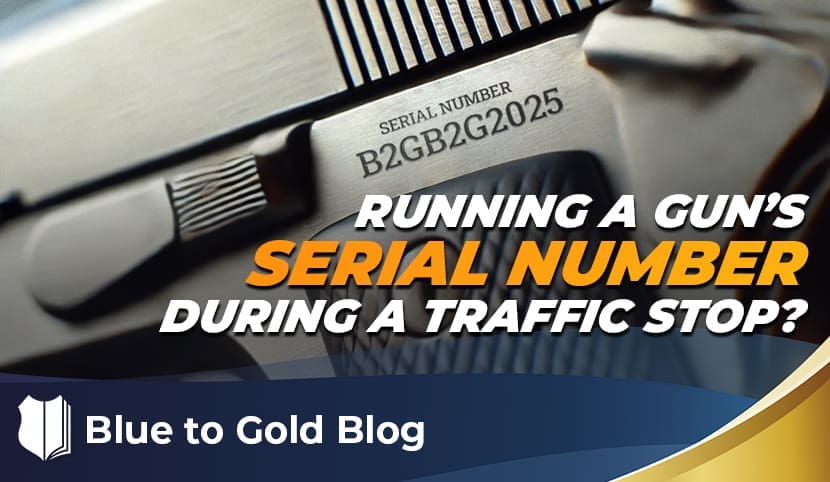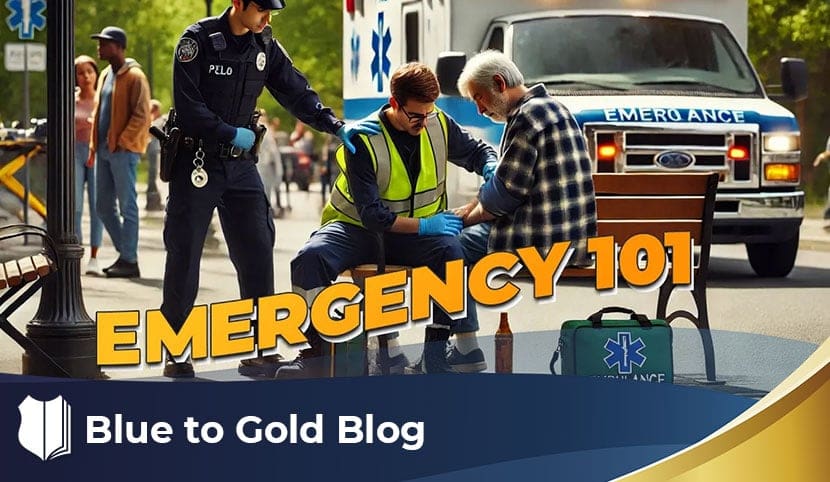Today’s question is: Can you run the serial number of a firearm during a traffic stop? The answer is most likely yes, but there are some important caveats to consider.
Lawful Seizure of a Firearm
First, we know that if you lawfully seize a firearm—such as during a pat-down or a traffic stop—it is generally upheld by the courts. Even if someone is lawfully carrying a concealed firearm, you may temporarily seize it for officer safety during the stop. That is well-established.
Once you have the firearm, its serial number is usually in plain view. Since you can see it without manipulating the firearm, it does not constitute a search under the Fourth Amendment.
Does Running the Serial Number Extend the Stop?
The next key legal question is whether running the firearm’s serial number extends the duration of the stop. If it does, it could be a violation under Rodriguez v. United States.
- If you run the firearm simultaneously with other routine checks—such as the driver’s license and registration—it typically will not be an issue, because it does not prolong the stop.
- However, if dispatch delays the return on the firearm’s status, and you have already completed all other aspects of the stop, then waiting for that response could unlawfully extend the stop. In such cases, any evidence obtained may be suppressed as fruit of the poisonous tree.
What If the Serial Number Is Not in Plain View?
If the serial number is obstructed—for example, covered by a Hogue grip or located under a firearm component—you must manipulate or disassemble the gun to access it. At this point, it becomes a search under the Fourth Amendment, which requires justification.
To support your decision to remove parts of the firearm and locate the serial number, you should have articulable reasons, such as:
- The individual has a criminal history that prohibits firearm possession.
- The person is affiliated with a gang or other organization linked to firearm-related crimes.
- There is evidence of drug use, since federal law prohibits habitual drug users from possessing firearms.
Having a clear justification can help defend your actions in court.
How Courts May View This
The courts are generally supportive of law enforcement efforts to identify and recover stolen firearms. In anti-gun states like New Jersey, New York, and California, trial courts are likely to uphold these actions. However, in pro-gun states like Texas and Tennessee, courts may be more critical and require stronger justification for firearm-related searches.
Final Thoughts
While there aren’t many cases directly addressing this issue, I believe this guidance helps move the conversation forward.










